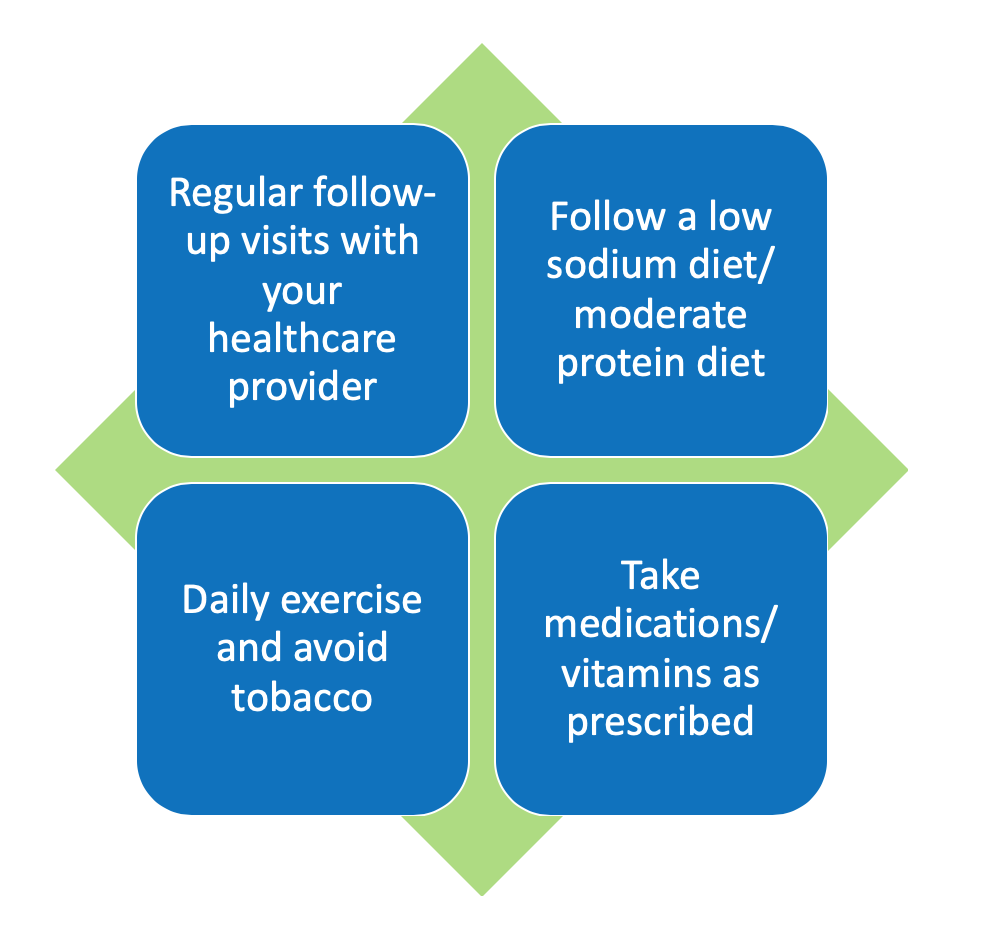Introduction of APOL1 and Kidney Disease
Chronic kidney disease (CKD) results from a variety of health impairments that affect the kidney’s ability to perform its major functions such as cleaning the blood in our bodies. Many people suffer from CKD and kidney failure. New research is suggesting that genetic differences between people may influence an individual’s lifetime risk for kidney disease. One new research path is suggesting that genes (specifically APOL1) may affect the health of the kidney in certain individuals. As more research is developed around APOL1, new medical treatments will also be able to support and treat those with genetic markers for APOL1.
What is the APOL1 Gene?
Apolipoprotein L1 (APOL1) is a gene located on chromosome 22, and has two coding variants, G1 and G2. APOL1 produces a protein that is a component of circulating high-density lipoprotein. Those who have APOL1 (termed G1 and G2) have an increased risk of developing nondiabetic kidney disease and an increased risk for idiopathic focal segmental glomerulosclerosis (FSGS). APOL1 has been identified as a “kidney-risk” gene in certain populations.
What causes the gene APOL1 to be different in certain populations?
Research findings are still in the beginning stages; however, people of African American descent are more at risk for having the APOL1 gene that causes non-diabetic kidney disease.
Who is most affected by the APOL1 Gene?
- Persons of African descent (in particular descendants from West Africa)
- Those who have human immunodeficiency virus (HIV) and are African American
- Those diagnosed with high blood pressure (hypertension)
What are the symptoms?
Chronic kidney disease is the gradual loss of kidney function. Your kidneys filter wastes and excess fluids from your blood, which are then eliminated in your urine. When CKD reaches an advanced stage, dangerous levels of fluid, electrolytes and toxins can build up in your body. In the early stages of CKD, you may have few signs or symptoms. Chronic kidney disease may not become apparent until your kidney function is significantly impaired. The following signs and symptoms could indicate kidney disease and follow-up with your healthcare provider will be essential:
- Nausea/vomiting
- Loss of appetite
- Fatigue and weakness
- Difficulty sleeping
- Decrease in urine output
- Feeling confused
- Muscle twitches and cramps
- Swelling of feet and ankles due to retaining fluid
- Chest pain if fluid builds up around the lining of the heart
- Shortness of breath if fluid builds up in the lungs
- High blood pressure (hypertension) that is difficult to control
How is APOL1 diagnosed?
- It remains unclear when genetic testing for APOL1 is clinically indicated. However, having a conversation with your healthcare provider about having a genetic test may be necessary.
- The broad diagnosis of kidney disease is given to patients at this time until further detailed research can help narrow down specific treatment options for APOL1.
If I have the APOL1 gene, what are my treatment options? Currently, treatment is focused on treating symptoms such as high blood pressure, high cholesterol, diabetes, swelling in hands, ankles, and face. Often medication is used to alleviate the symptoms.
Are there medications I can take?
- Blood pressure medications such as an ACE inhibitor or an ARB
- High cholesterol medication
- Diuretics to help pull extra fluid from the body
- Steroids to help with inflammation
- Diabetes medication
Are there lifestyle changes that I can make if I have the APOL1 gene?

What happens if treatment does not work? What is the ultimate disease process?
- Kidney failure could result if conservative treatment does not slow the progression of the disease caused by APO1 gene.
- If kidney failure develops, treatment includes dialysis or a kidney transplant.
- If a kidney transplant is an option, consideration of a genetic test may be done (from the organ donor) to ensure the transplanted kidney does not have the “at-risk” gene for APOL1. This will help decrease the chance of re-developing the risk factors that lead to kidney disease.
Known facts about APOL1 (G1 and G2) and future studies:
- Descendants of West African countries, such as Nigeria, tend to have a higher prevalence of APOL1 gene mutation, whereas Ethiopia descendants are less at risk.
- The absence of one gene (G1 or G2) does not discount the other so it may be preferable to be genetically tested for both
- The sole presence of two APOL1high-risk variants is not sufficient to cause disease; therefore, it is highly likely that other genetic and environmental factors contribute to the chances of developing kidney disease in addition to having the APOL1 gene.
- Future clinical studies will continue to be needed to determine which treatments will support those the best that have the APOL1 gene mutation and helping to slow the progression of kidney disease.
Additional Resources:
- AAKP Pocket Guide to Thinking about Genetics and Kidney Disease (Download)
- Current Research on APOL 1: NIH Leadership in Rare and Genetic Kidney Diseases (Jeffery Kopp, MD) (Watch OnDemand)
- Emerging Transformative Initiatives: APOL1 and the NIH-APOLLO Study (Barry I. Freedman, MD, FACP)
- Emerging Research with Global Implications: Identification & Diagnosis of Kidney Diseases - APOL1 (Cheryl Ann Winkler, PhD)



















